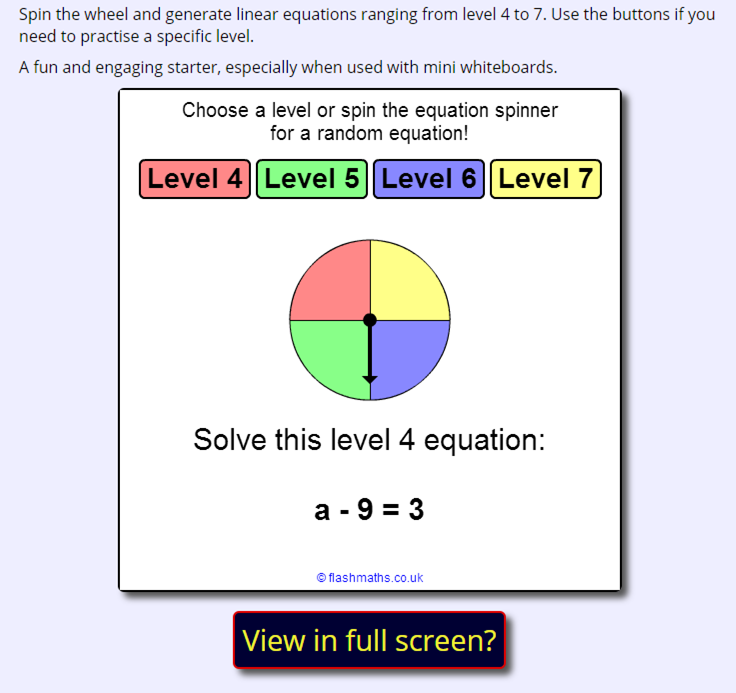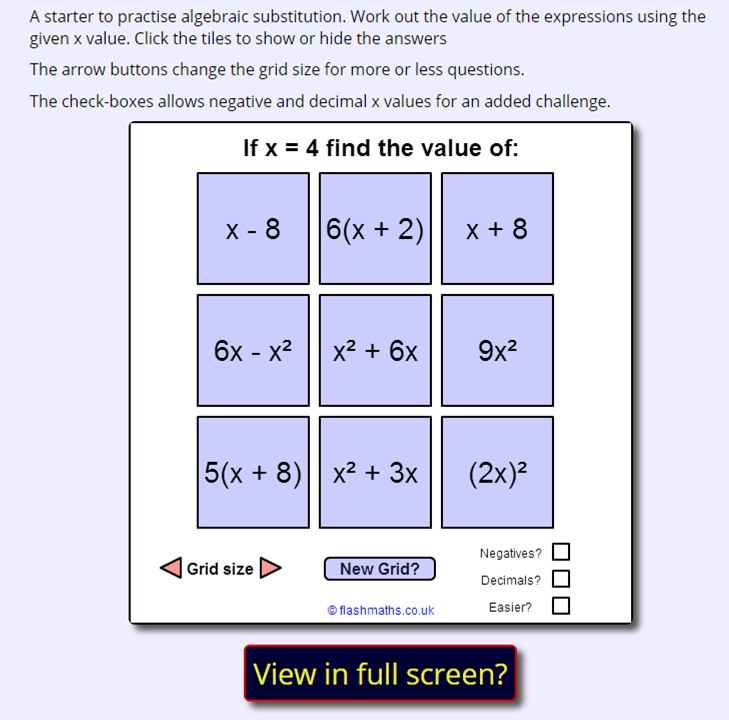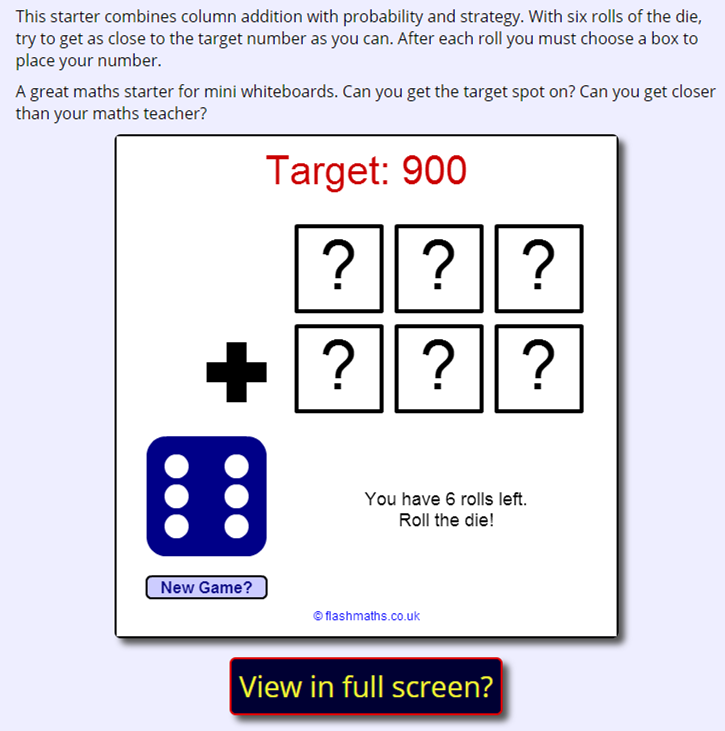- Typical past paper practice, with red/amber/green topic sheets to record their results;
- The brilliant Maths Takeaway booklets from Kesh Maths (my pupils seem to really like these - I have had requests for "doing more of those topic booklets, please" from quite a few of them);
- Revision folders to collect all their past papers, posters etc as we've gone through the course;
- Creation of revision posters or cards for key topics, so all the pertinent notes are in the correct place.
1. Do we take organisation skills for granted?
We assume that pupils know how to revise and organise their time. I'm so guilty of setting the "revise for this mini-test" homework with the implicit assumption that pupils will have the slightest clue how to go about doing this. In some cases, such as those with the permanently lost maths book, they often won't have any meaningful class notes or work to revise from. I've also lost count of the number of times I've had conversations with pupils that go a bit like this:
Me: (Hands back test with less-than-adequate mark) Did you do any revision?
Pupil: Yes I did loads, like four hours!
Me: What did you do to revise?
Pupil: I read through all my notes and then went on Bitesize.
Me: Did you actually do any questions?
Pupil: No...
Despite the fact that I keep telling my pupils that they need to actually do maths to help them revise or learn, I hardly ever give them any direction to where they can find any of these resources. My direction of "use the Internet" is similarly useless - there's so much stuff around now that there's no guarantee that it will be good quality, or that pupils can even find it (MyMaths menus are an excellent example - unless you think in teacher speak, it can be very difficult to find some topics!).
Ryan suggested creating a revision notebook (preprinted with space to write examples) where pupils could record all of the really important stuff from lessons. This has obvious implications for the photocopying budget, but I wonder if it would really help certain pupils.
2. Why don't pupils revise?
Once we've got round the organisational issues and problems, there's still the issue that some pupils just won't do revision homework (the ones that go "Yessss!" when you say that they need to revise for an assessment, because in their minds, that equals no homework). We know that revision makes a difference to final exam results, but Ryan made the important point that, for some pupils, they don't see the point in revising because they think they are still going to fail. A lot of the ideas behind this next bit come down to a pupil's mindset. A pupil who has experienced success is more likely to want to work hard at something than one who has attempted to work hard in the past but had no success (the "I'm crap at maths" bunch).
3. Working hard makes a massive difference
Combating the "I can't do maths" is one of the most difficult things to do, and I've heard it from all ages and abilities. I'm still on the fence about whether or not there is such a thing as "natural maths ability". If there is, I certainly don't have it - I was much better at French and German at school and breezed through my English Literature exams without lifting a finger, but I had to work hard at Maths. I think this is one of the reasons I came to enjoy it so much, purely because I did actually have to think during Maths lessons and didn't get bored because it was all too easy. Obviously there is some difference between "any old" maths graduate and someone like Andrew Wiles, but my personal opinion (backed up by absolutely no research or concrete evidence at all) is that most people are equally capable of doing maths, it's just that at some point on the mathematical journey, an important building block gets left out and then the cycle of desperation starts.
Sometimes pupils don't see just how important hard work in Maths is, partially because there's this culture of "either you can or you can't", and it's socially acceptable to be part of the "can't" crew. But I've had at least two pupils in the past - "bottom set kids" (with sarcastic quotation marks) achieve well above their targets of Fs and Es to get a grade C at the end of Year 11, and this was purely because they worked really hard every single lesson.
Ryan showed us one video in the session that illustrates this point beautifully - it's Ed Sheeran on Jonathan Ross's chat show, explaining just how bad he used to be at singing.
In a similar vein, it's worth sharing the story of Dan McLaughlin, who quit his job in 2010 to take up golfing, despite having never played a complete game in his life. He's not reached the 10000 hour mark yet, but is competing nationally. There are a few great videos on his site.
4. What motivates pupils to revise or work hard?
If pupils do revise, it is likely that they've already bought into some of the points discussed above. One thing that Ryan mentioned (that is apparently backed up by significant research - I'll have to go digging) is that extrinsic rewarding (stickers, stamps, sweets, bribery!) does very little in motivating pupils to work hard. This really stuck with me - many of our reward systems at school are based on this premise, but it kind of makes sense that frequent extrinsic rewards might diminish or mask the intrinsic reward of personal success through hard work.
Something else mentioned (which I think is the most important thing I've learned in teaching) is that pupils are most motivated by a teacher they can trust and build confidence with. I think it's important to start off building small measures of success, particularly with a new class, so when you get onto the stuff they're really going to struggle with, they don't lose complete faith that they'll never get it.
5. Using deliberate practice
Build time into lessons for pupils to deliberately practise the skills they have learned. This is something I shied away from in my first couple of years of teaching (surely every lesson needs to be whizzy with seventeen different card sorts and pupils running round the room), but I've got significantly better at it this year. Working on a mastery curriculum model (and having quite a bit of success with it!) has made me realise how important it is for pupils to practise what they have learned, sometimes over and over again until it's almost automatic. This is why my Year 9s can successfully add fractions a month after I've taught it (that's never happened before).
Ryan showed us a couple of nice videos to illustrate this point - Odell Beckham making "the greatest catch in the history of football", and then his warmup sessions repeatedly practising exactly the same catch.
| | |
| On a similar note, there's also a video of Cristiano Ronaldo scoring three goals in a completely dark environment. | |



 RSS Feed
RSS Feed
